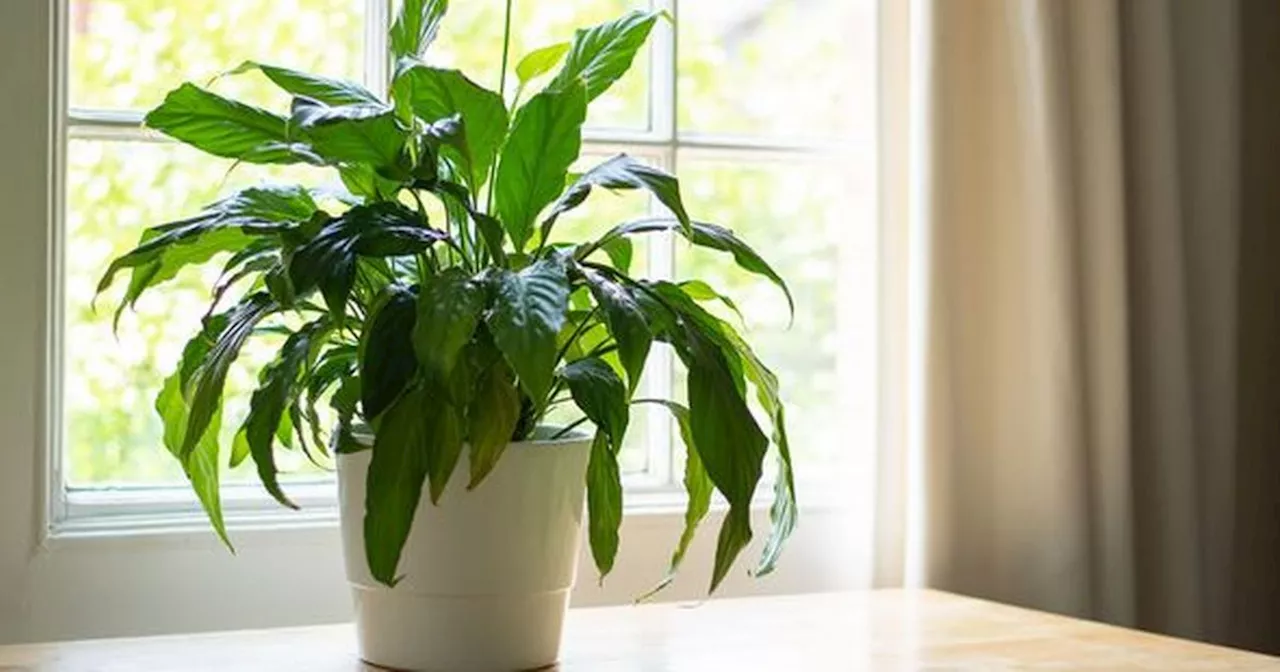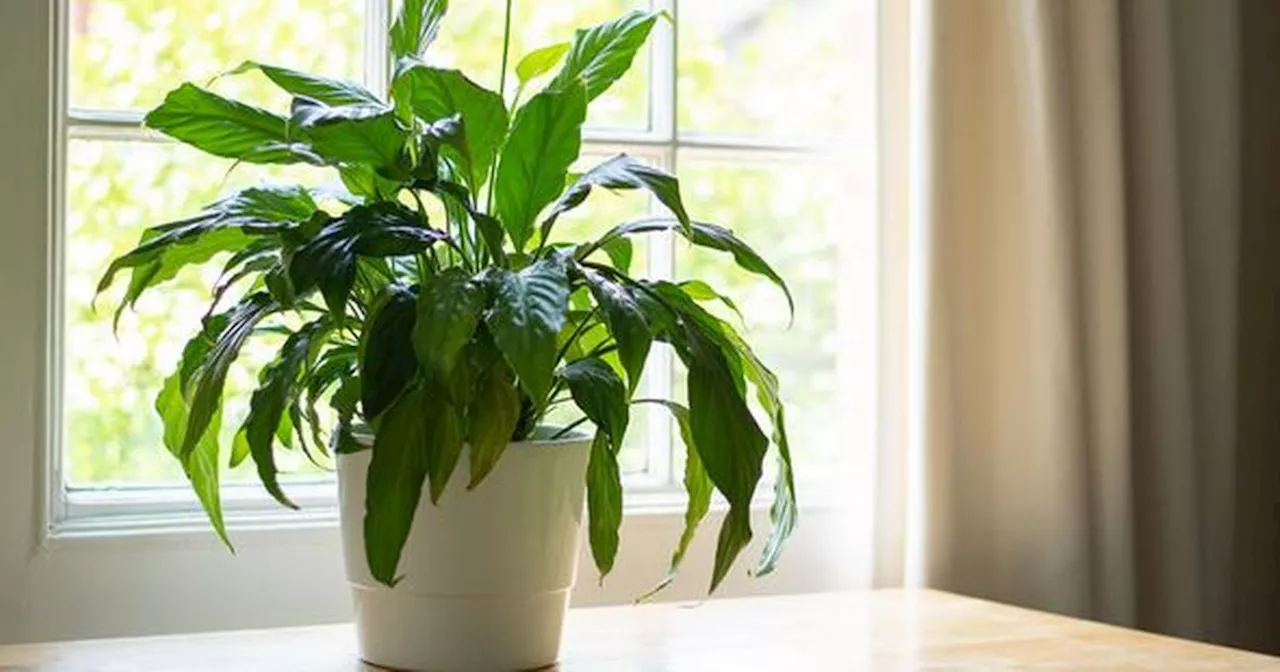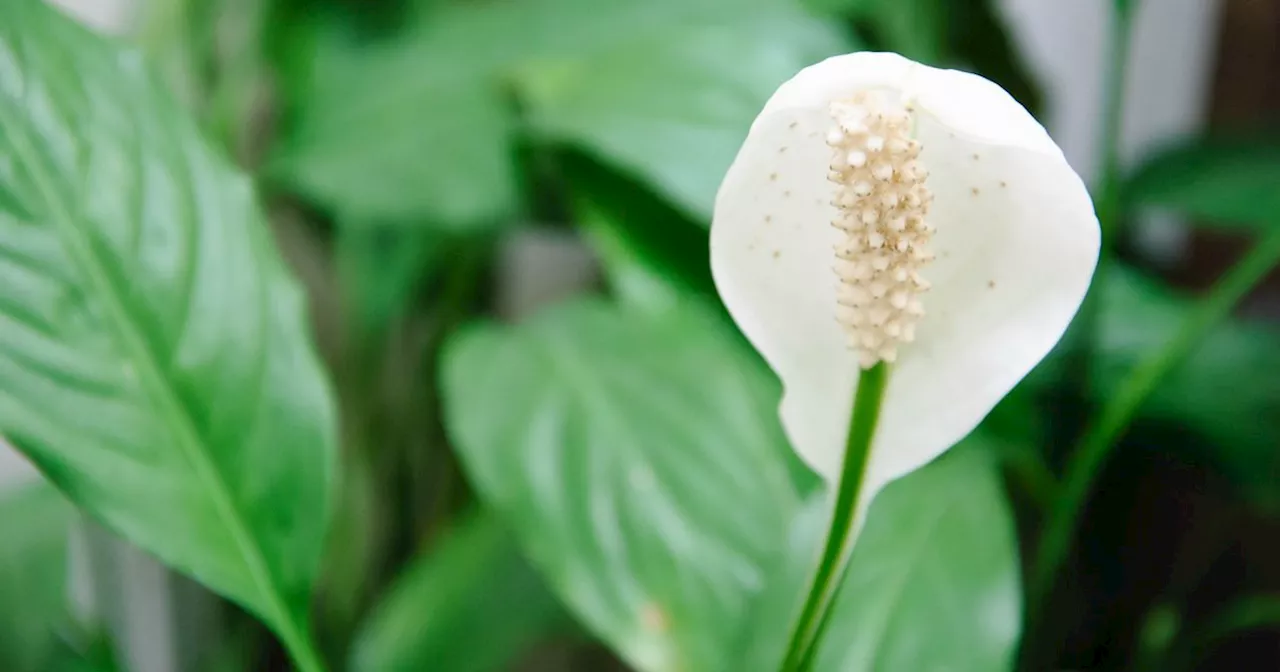This article explores the benefits of houseplants in reducing mold growth in homes, particularly during colder months. It highlights how certain plants like peace lilies and snake plants absorb moisture and toxins, creating a healthier indoor environment.
The colder months bring increasing risks of mould forming in our homes. Older houses such as Victorian builds and listed buildings are more prone to developing mould problems due to higher humidity and reduced ventilation. However, you don't have to fork out a pretty penny for new air conditioning systems. A few common household plants tackle the problem head on with air purifying properties so you won't even need to pick up a mould spray this season.
Plants such as peace lilies and the bird of paradise are particularly effective at pulling moisture from the air which can help lower indoor humidity levels. By strategically placing these plants in damp areas, homeowners can create a natural humidity buffer. Beyond moisture control, some houseplants also improve indoor air quality. Peace lilies and snake plants are known to reduce airborne toxins that can contribute to mould spore growth. These plants absorb pollutants and convert them into nutrients, helping to clean the air naturally. The plants are most effective in problem areas where mould grows the most - bathrooms, kitchens and laundry rooms. Boston ferns specifically are best suited for stronger results. Jo, founder of plant company Beards & Daisies , and author of the houseplant guide ' The Unkillables ', said: “Incorporating a few carefully chosen houseplants can make a real, measurable difference in controlling moisture and mould, especially in the cooler months when these issues tend to peak. While houseplants are often praised for their aesthetic appeal, their functional role in improving indoor air quality and humidity regulation is frequently overlooked. 'They not only help with humidity but also contribute to creating a fresher, healthier atmosphere overall. It’s a small but effective way to improve your home environment, especially when other ventilation options might be limited during autumn and winter—and let's not forget, houseplants boost your mood too.
HOUSEPLANTS MOLD HUMIDITY AIR QUALITY HEALTH
United Kingdom Latest News, United Kingdom Headlines
Similar News:You can also read news stories similar to this one that we have collected from other news sources.
 Houseplants That Can Combat Mould and CondensationDiscover which houseplants effectively absorb moisture, fight mould spores, and purify the air, creating a healthier living environment.
Houseplants That Can Combat Mould and CondensationDiscover which houseplants effectively absorb moisture, fight mould spores, and purify the air, creating a healthier living environment.
Read more »
 Houseplants Can Help Combat Mould and CondensationCertain houseplants can effectively absorb excess moisture from the air, helping to reduce condensation and mould growth. Experts recommend peace lilies and English ivy for their potent mould-fighting abilities. However, pet owners should exercise caution as both plants are toxic to animals.
Houseplants Can Help Combat Mould and CondensationCertain houseplants can effectively absorb excess moisture from the air, helping to reduce condensation and mould growth. Experts recommend peace lilies and English ivy for their potent mould-fighting abilities. However, pet owners should exercise caution as both plants are toxic to animals.
Read more »
 Houseplants Can Help Combat Mould and CondensationCertain houseplants can effectively absorb humid air and mould spores, improving indoor air quality and reducing the presence of mould. The article highlights peace lilies and English ivy as particularly effective options.
Houseplants Can Help Combat Mould and CondensationCertain houseplants can effectively absorb humid air and mould spores, improving indoor air quality and reducing the presence of mould. The article highlights peace lilies and English ivy as particularly effective options.
Read more »
 Houseplants Can Combat Mold in Your HomeLearn how certain houseplants can naturally combat mold growth during the colder months.
Houseplants Can Combat Mold in Your HomeLearn how certain houseplants can naturally combat mold growth during the colder months.
Read more »
 Pet Zen Stickers: A Natural Solution to New Year Fireworks AnxietyNat Pat's Pet Zen Stickers, infused with essential oils, are reported to calm even the most anxious pets during stressful situations like fireworks.
Pet Zen Stickers: A Natural Solution to New Year Fireworks AnxietyNat Pat's Pet Zen Stickers, infused with essential oils, are reported to calm even the most anxious pets during stressful situations like fireworks.
Read more »
 UK, Italy and Japan’s defence groups set up venture overseeing fighter jet projectCompany will be accountable for delivering next generation combat aircraft under Global Combat Air Programme
UK, Italy and Japan’s defence groups set up venture overseeing fighter jet projectCompany will be accountable for delivering next generation combat aircraft under Global Combat Air Programme
Read more »
